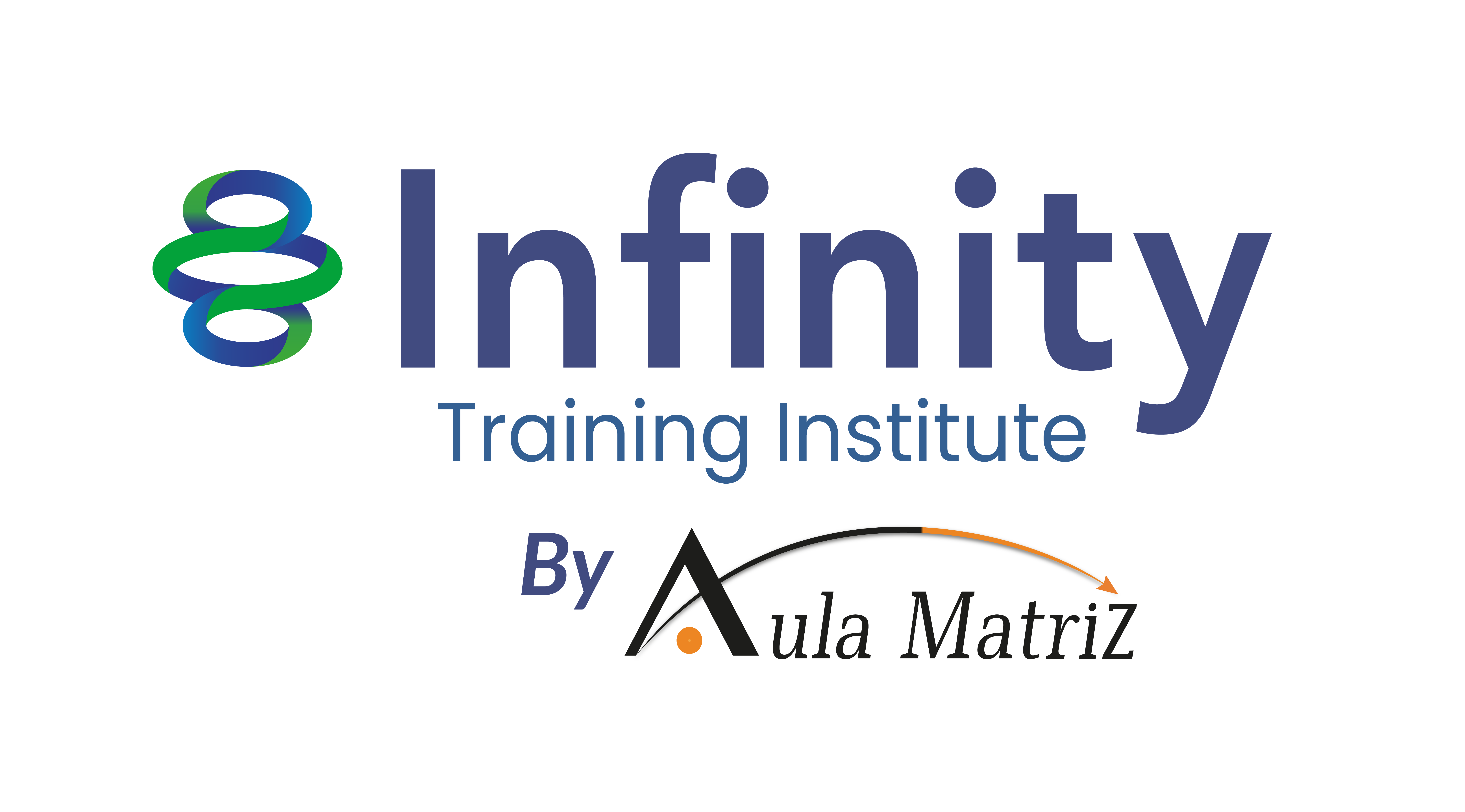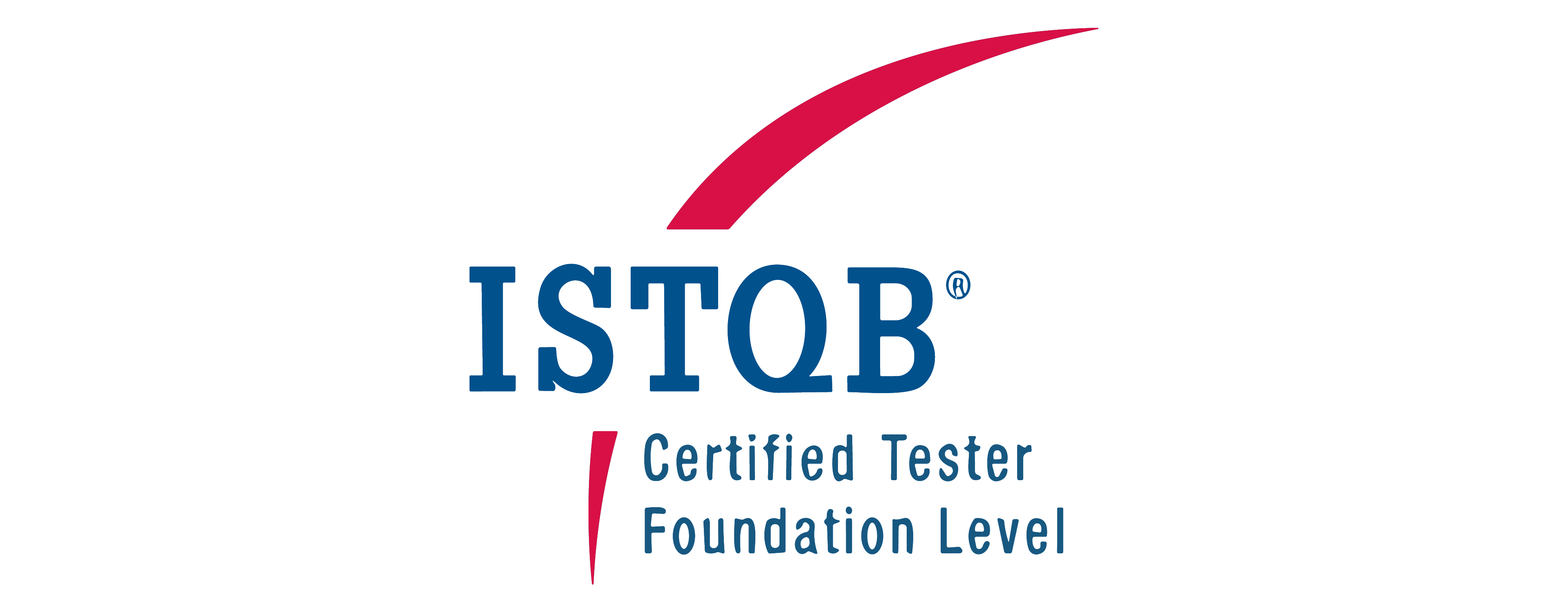The ISTQB Foundation Level 4.0 (CTFL) course is designed to provide complete software testing, from basic concepts to its application in the development cycle.
This program prepares participants to obtain international certification:
ISTQB Certified Tester Foundation Level 4.0 (CTFL).
Students will learn about test strategies, test case design, defect management and automation tools, ensuring the effective application of tests in software projects.
Under the practical Learning Method approach, participants will work on laboratories, practical workshops and/or real projects, ensuring the effective application of knowledge acquired in business environments.
At the end of the course, participants will be able to:
- Understand the fundamental concepts of software tests and their importance in software development
- Identify trial strategies and approaches, adapting them to the context of the project
- Design and execute effective tests, aligned with the software development life cycle
- Manage software defects, applying report and monitoring methodologies
- Automate software tests, evaluating benefits and risks of automation tools
- Align the test process with standards and best practices in the industry
- Obtain international certification ISTQB Foundation Level 4
- 0 (CTFL)
To participate in this training, attendees must meet the following requirements:
- Be part or be involved in the IT area.
This requirement ensures that participants can focus on the practical application of software tests without initial technical difficulties.
| Certificacion ISTQB Foundation Level 4.0 CTFL en pruebas de software | Applies |
|---|---|
| Certificacion ISTQB Foundation Level 4.0 CTFL en pruebas de software | 27 hours |
Learning Methodology
The learning methodology, regardless of the modality (in-person or remote), is based on the development of workshops or labs that lead to the construction of a project, emulating real activities in a company.
The instructor (live), a professional with extensive experience in work environments related to the topics covered, acts as a workshop leader, guiding students' practice through knowledge transfer processes, applying the concepts of the proposed syllabus to the project.
The methodology seeks that the student does not memorize, but rather understands the concepts and how they are applied in a work environment.
As a result of this work, at the end of the training the student will have gained real experience, will be prepared for work and to pass an interview, a technical test, and/or achieve higher scores on international certification exams.
Conditions to guarantee successful results:
- a. An institution that requires the application of the model through organization, logistics, and strict control over the activities to be carried out by the participants in each training session.
- b. An instructor located anywhere in the world, who has the required in-depth knowledge, expertise, experience, and outstanding values, ensuring a very high-level knowledge transfer.
- c. A committed student, with the space, time, and attention required by the training process, and the willingness to focus on understanding how concepts are applied in a work environment, and not memorizing concepts just to take an exam.
Pre-enrollment
You do not need to pay to pre-enroll. By pre-enrolling, you reserve a spot in the group for this course or program. Our team will contact you to complete your enrollment.
Pre-enroll nowInfinity Payments
Make your payment quickly, safely and reliably
- For bank transfer payments, request the details by email
capacita@aulamatriz.edu.co.
- If you wish to finance your payment through our credit options
(Sufi, Cooperativa Unimos or Fincomercio), click on the following link:
Ver opciones de crédito.
Description
The ISTQB Foundation Level 4.0 (CTFL) course is designed to provide complete software testing, from basic concepts to its application in the development cycle.
This program prepares participants to obtain international certification:
ISTQB Certified Tester Foundation Level 4.0 (CTFL).
Students will learn about test strategies, test case design, defect management and automation tools, ensuring the effective application of tests in software projects.
Under the practical Learning Method approach, participants will work on laboratories, practical workshops and/or real projects, ensuring the effective application of knowledge acquired in business environments.
Objectives
At the end of the course, participants will be able to:
- Understand the fundamental concepts of software tests and their importance in software development
- Identify trial strategies and approaches, adapting them to the context of the project
- Design and execute effective tests, aligned with the software development life cycle
- Manage software defects, applying report and monitoring methodologies
- Automate software tests, evaluating benefits and risks of automation tools
- Align the test process with standards and best practices in the industry
- Obtain international certification ISTQB Foundation Level 4
- 0 (CTFL)
To participate in this training, attendees must meet the following requirements:
- Be part or be involved in the IT area.
This requirement ensures that participants can focus on the practical application of software tests without initial technical difficulties.
offers
| Certificacion ISTQB Foundation Level 4.0 CTFL en pruebas de software | Applies |
|---|---|
| Certificacion ISTQB Foundation Level 4.0 CTFL en pruebas de software | 27 hours |
Learning Methodology
The learning methodology, regardless of the modality (in-person or remote), is based on the development of workshops or labs that lead to the construction of a project, emulating real activities in a company.
The instructor(live), a professional with extensive experience in work environments related to the topics covered, acts as a workshop leader, guiding students' practice through knowledge transfer processes, applying the concepts of the proposed syllabus to the project.
La metodología persigue que el estudiante "does not memorize", but rather "understands" the concepts and how they are applied in a work environment."
As a result of this work, at the end of the training the student will have gained real experience, will be prepared for work and to pass an interview, a technical test, and/or achieve higher scores on international certification exams.
Conditions to guarantee successful results:
- a. An institution that requires the application of the model through organization, logistics, and strict control over the activities to be carried out by the participants in each training session.
- b. An instructor located anywhere in the world, who has the required in-depth knowledge, expertise, experience, and outstanding values, ensuring a very high-level knowledge transfer.
- c. A committed student, with the space, time, and attention required by the training process, and the willingness to focus on understanding how concepts are applied in a work environment, and not memorizing concepts just to take an exam.
Infinity Payments
Make your payment quickly, safely and reliably
- For bank transfer payments, request the details by email
capacita@aulamatriz.edu.co.
- If you wish to finance your payment through our credit options
(Sufi, Cooperativa Unimos or Fincomercio), click on the following link:
Ver opciones de crédito.
Course Modules
Module I: Fundamentals of Testing
- What is testing?
- Objectives of testing
- Testing and debugging
- Why is testing necessary?
- Contributions of testing to success
- Testing and quality assurance (QA)
- Errors, defects, failures, and root causes
- Principles of testing
- Testing activities, testware, and testing roles
- The testing process in context
- Testware
- Traceability between the test basis and testware
- Roles in testing - Essential skills and best practices in testing
- Generic skills required for testing The whole team approach
- Independence of testing.
Module II: Testing Throughout the Software Development Life Cycle
- - Testing in the context of a software development life cycle
- Impact of the software development life cycle on testing
- Software development life cycle and best testing practices
- Testing as a guide for software development
- DevOps and testing
- Left shift approach
- Retrospectives and process improvement - Levels of testing and types of testing
- Levels of testing
- Types of testing
- Confirmation testing and regression testing
- Maintenance testing
Module III: Static Testing
- Basic concepts of static testing
- Work products that can be evaluated through static testing
- Value of static testing
- Differences between static testing and dynamic testing
- Feedback and review process
- Benefits of early and frequent feedback from stakeholders
- Activities in the review process
- Roles and responsibilities in reviews
- Types of reviews
- Success factors for reviews
Module IV: Test Analysis and Design
- General description of testing techniques
- Black box testing techniques
- Equivalence partitioning
- Boundary value analysis
- Decision table testing
- State transition testing
- White box testing techniques
- Statement testing and statement coverage
- Branch testing and branch coverage
- The value of white box testing
- Experience-based testing techniques
- Error guessing
- Exploratory testing
- Checklist-based testing
- Collaborative testing approaches
- Collaborative writing of user stories
- Acceptance criteria
- Acceptance Test Driven Development (ATDD)
Module IV: Test Analysis and Design
- General description of testing techniques
- Black box testing techniques
- Equivalence partitioning
- Boundary value analysis
- Decision table testing
- State transition testing
- White box testing techniques
- Statement testing and statement coverage
- Branch testing and branch coverage
- The value of white box testing
- Experience-based testing techniques
- Error guessing
- Exploratory testing
- Checklist-based testing
- Collaborative testing approaches
- Collaborative writing of user stories
- Acceptance criteria
- Acceptance Test Driven Development (ATDD)
Module V: Management of Testing Activities
- Test Planning
- Purpose and content of a test plan
- Tester contribution to iteration and delivery planning
- Entry criteria and exit criteria
- Estimation techniques
- Prioritization of test cases
- Test pyramid
- Test quadrants
- Risk management
- Definition of risk and risk attributes
- Project risks and product risks
- Product risk analysis
- Product risk control
- Test monitoring, test control, and test closure
- Metrics used in testing
- Purpose, content, and audience of test reports
- Communicating the status of testing
- Configuration management
- Defect management
Module VI: Testing Tools
- Tool support for testing
- Benefits and risks of test automation



